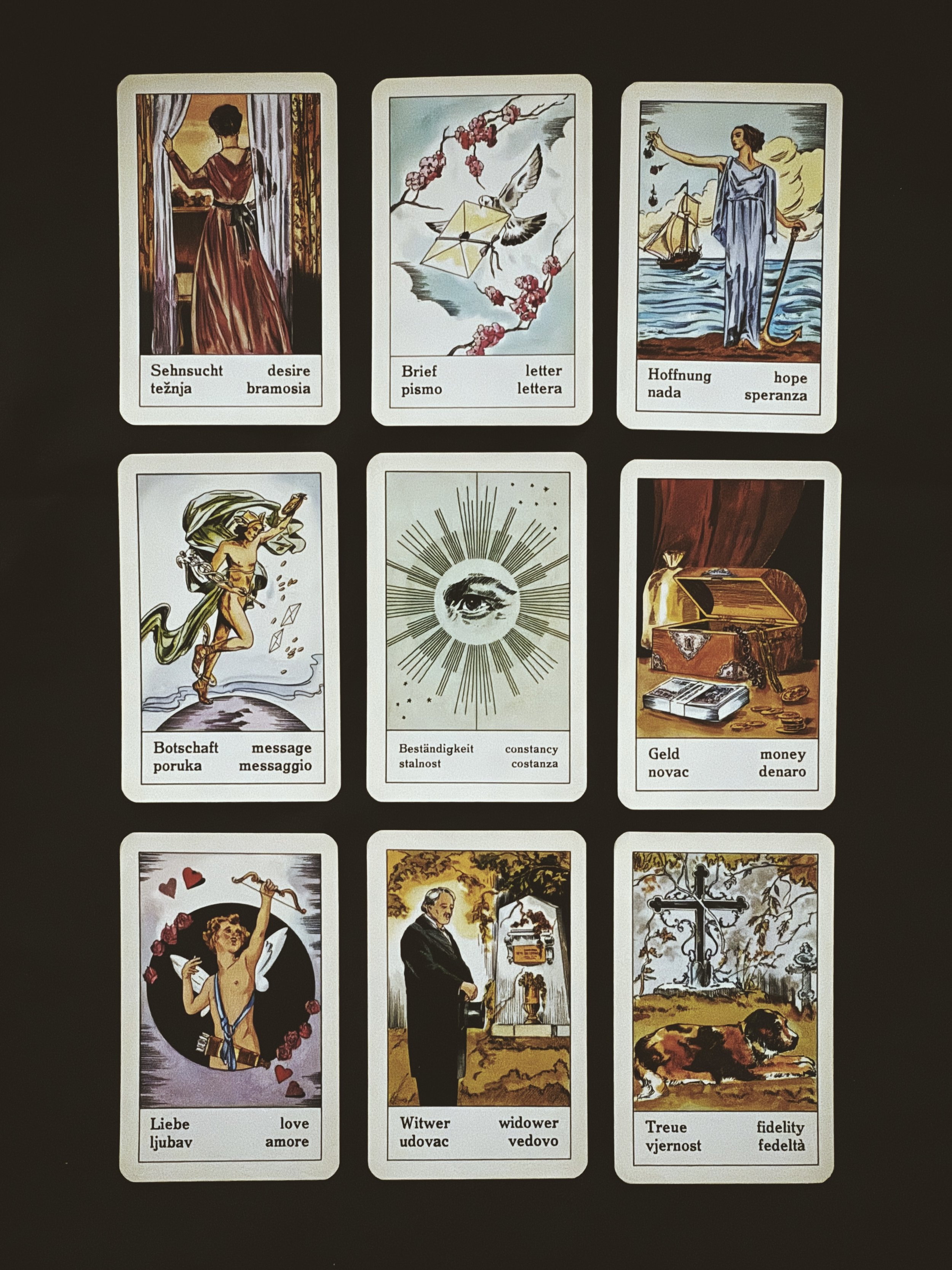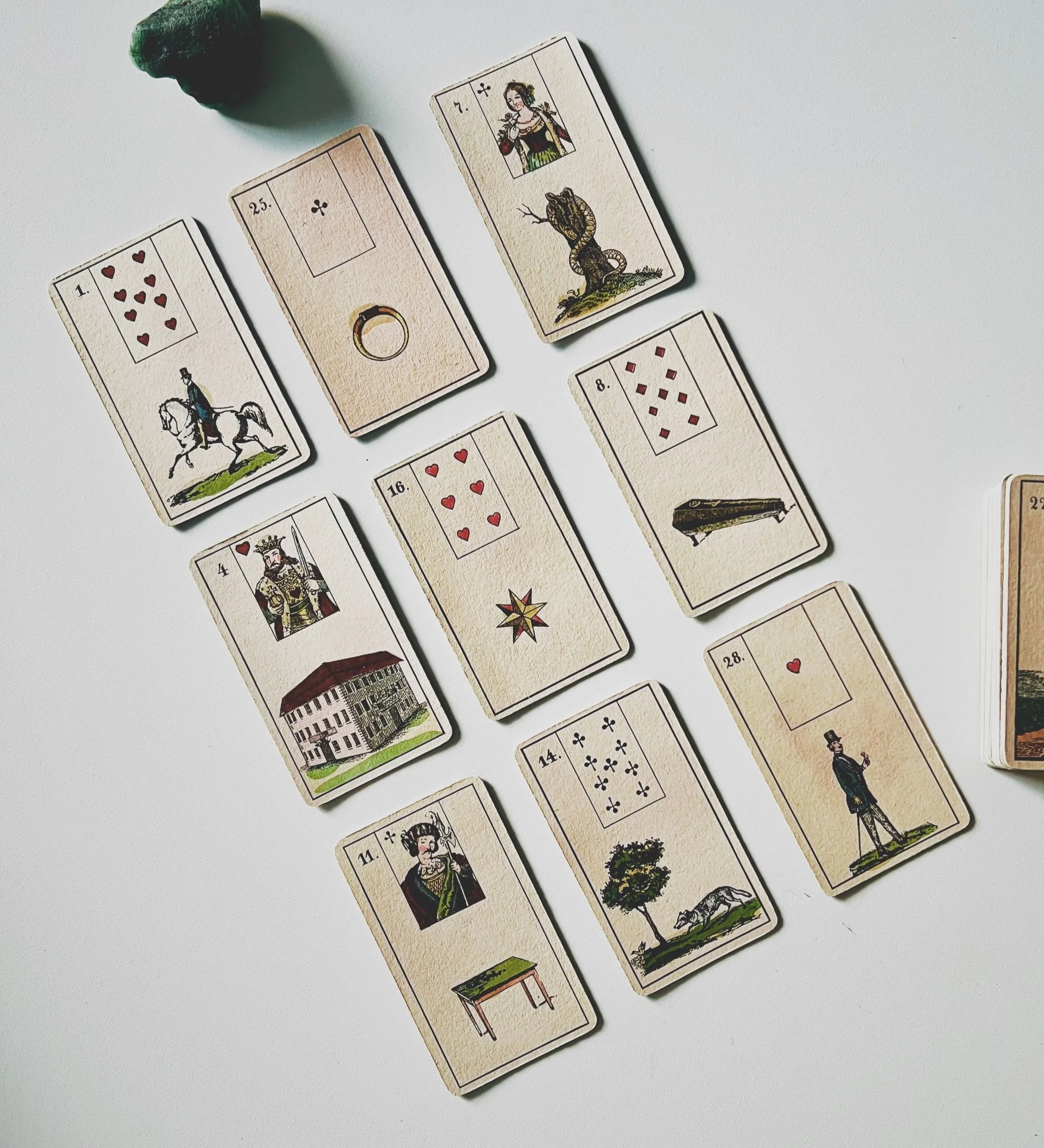Building What You Love: A Business Reading with Gypsy Fortunetelling Cards
In these late-capitalist times, enormous pressure is placed on us — the compliant labor subjects — to perform above and beyond, all in the name of growth. We’re constantly told that to stop “growing” and “developing ourselves” is to render ourselves dead, or worse, irrelevant.
But a human being cannot so easily devote their entire life to abstract projections. We need a rationale. Enter: “doing a job you love.” We’ve gone so far as to build our entire identities around what we do. Consequently, we’ve placed too much emphasis on loving our jobs — and when inevitable setbacks arise, we collapse into burnout.
Burnout, notably, did not exist until very recently. Why? Because only recently have we equated our 9-to-5 with our identity, our life, and our source of happiness.
I never fell for this illusion, for a simple reason: in this day and age, within the system we operate, working for an employer cannot — and will not — make you happy. You enter into a contract where you are not paid for the work you do but for the hours you surrender. You are, therefore, in a perpetual state of exploitation.
Perhaps it was my Slavic bitterness and Balkan upbringing that allowed me to see this clearly: life will never guarantee happiness, and work is just that — work, a source of income. As long as someone else pays your wage, you are there only to fulfill what the contract dictates — no more, no less. And correct me if I’m wrong, but that cannot possibly be a place from which to do what you love.
You want to work on what you love? Then make it happen yourself.
One of my clients has, fortunately, come to this realization himself. He started a private business some time ago as a side venture, though it hasn’t taken off the way he had hoped. Still, he didn’t give up — he kept at it, trusting that what he offered would eventually reach the right people. Recently, he asked how the business might develop by the end of this year.
To answer, I cast a traditional Square of Nine with the Gypsy Fortunetelling Cards, and the reading it produced was too good not to share. So let me walk you through it, step by step.
Piatnik’s Gypsy Fortunetelling Cards (1960s), in my private collection.
Let us first take a quick glance at the entire spread: we cannot help but notice the Eye of Providence (Constancy) positioned at the center of the reading. At the heart of this question lies a clear vision, supported on all sides: a distinct offer (Letter), a coherent message (Message), a solid business model (Money), and loyal backing (Widower). From here, we can begin to unpack the traditional structure.
In the first row — the row of the Head — we see how the querent currently perceives his situation: he has taken his Desire and anchored it in reality, putting his word into writing (Letter, his business website) and releasing it into the world with the hope of a good return (Hope).
In the middle row — what stares the client in the face — the cards show that his clear and consistent message is finally maturing into a tangible reward (Message, Constancy, Money, strengthened by Hope above). With the right approach, this venture is poised to take off.
In the bottom row — what we stand on — we see a loving, older man who remains steadfastly loyal to the cause (Love, Widower, Fidelity). The querent is receiving the right kind of support for this venture, and it appears to come from close to home (the bottom row traditionally also signifies home, or one’s roots). This resonates strongly with the client. But it also carries a broader message: strength comes from even a single person who truly believes in the cause. The numbers matter less than the quality and loyalty of a few clients.
Now let us turn to the columns. In the column of the past, we see the querent’s original intention clearly confirmed: he wished to share what he loves with the world (Desire, Message, Love). In the present column, he is actively shaping a clear and consistent message of what he offers, with the loyal support of an older man helping him crystallize it (Letter, Constancy, Widower). Finally, in the future column, the fruits of these efforts appear: a hopeful return, manifesting in loyalty and tangible reward (Hope, Money, Fidelity).
All of this turns around the Eye of Providence at the center — the vision that steadies him and aligns his steps, showing that clarity and trust in what he loves will guide him forward.
Finally, we read the diagonals and see where exactly the X marks the spot. When hope is driven by clarity to deliver what we love to others (Hope, Constancy, Love mirrored by Desire and augmented by Message), our desire crystallizes in the form of loyal returning clients (Desire, Constancy, Fidelity mirrored by Hope and augmented by Money).
After all the “wake up and smell the coffee” readings I handle regularly, this one was a welcome change. When we truly love our cause and want to see it succeed, the clarity and consistency of our vision are what carry it forward. We may never attract the masses — nor do we need to. What matters are the few who truly recognize and value what we bring to the table.
And if you’re still clinging to the futile hope that a wage job can make you genuinely happy, allow me to leave you with the words — and the music — of the remarkable artist Karin Dreijer.
“Neverland” (2006) by The Knife (Karin Dreijer)
Eyes are sober and this is the plan
I'm sitting in a car heading Neverland
A fancy man a fancy man
He's pointing with the fingers that are left on his handEyes are hazel but far too cold
Looking out for love
But none of us can
Where's the monkey that I've been told of
I'm staring at the money
That burns in my hand
I'm dancing for dollars
And for a fancy manCome right over
I'll knock on your sholder
This is a story and this is what I've planned
An angry man an angry man
Nothing is more fatal than an angry manVulnerable heights
Feed the hand that bites me
Following the steam into another room
Standing in the corner
Is this my home
Showing us love that none of us can
I'm singing for money
That burns in my handTell me
Will I make it home tonightI'm doing it for dollars and for a fancy man
I've got a lot of money that burns in my hand
For those who want to know where they stand.
My in-depth readings expose the structure beneath the surface: what holds, what shifts, and what you can build on. When you’re ready to face it, the cards are here.


